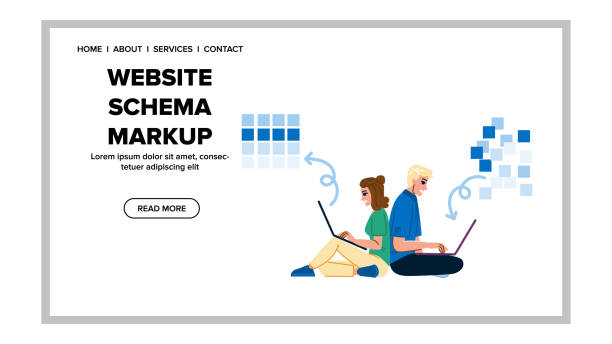Schema Markup:
Schema markup is a type of microdata that you can add to your website to help search engines return more informative results for users. It is a standardized vocabulary that defines entities, relationships, and actions on the internet. Here’s an in-depth look at schema markup, its benefits, and how to implement it.
1. What is Schema Markup?
Schema markup is code that you place on your website to help search engines understand your content and provide more relevant results to users. It was created by the major search engines (Google, Bing, Yahoo, and Yandex) and can be found at Schema.org.
2. Types of Schema Markup

There are many types of schema markup, each designed for specific types of content. Some common types include:
- Article: For news articles, blog posts, and other written content.
- Product: For product information, including pricing, availability, and reviews.
- Event: For events such as concerts, webinars, and meetups.
- Organization: For company information, including contact details and location.
- Local Business: For local business details, including address, hours of operation, and reviews.
- Person: For individual profiles, including name, job title, and contact details.
- Review: For user reviews and ratings of products, services, or businesses.
- FAQ: For pages containing frequently asked questions and answers.
- HowTo: For step-by-step instructions or guides.
3. Benefits of Schema Markup
- Enhanced Search Results: Schema markup can enhance search results with rich snippets, which can include additional information like ratings, prices, and images.
- Increased Click-Through Rates (CTR): Rich snippets can make your search listings more attractive, potentially leading to higher CTR.
- Better Understanding by Search Engines: Schema markup helps search engines understand your content better, which can improve your chances of appearing in relevant search results.
- Voice Search Optimization: Structured data helps with voice search queries by providing clear, concise answers that voice assistants can use.
4. How to Implement Schema Markup
Using JSON-LD (JavaScript Object Notation for Linked Data)
JSON-LD is the recommended format for adding schema markup to your website. Here’s a step-by-step guide to implementing JSON-LD:
- Choose the Right Schema Type: Visit Schema.org to find the appropriate schema type for your content.
- Generate the JSON-LD Code: Use a schema markup generator or create the code manually.
- Add the JSON-LD Code to Your Website: Insert the JSON-LD script into the
<head>section or just before the closing</body>tag of your HTML document.












